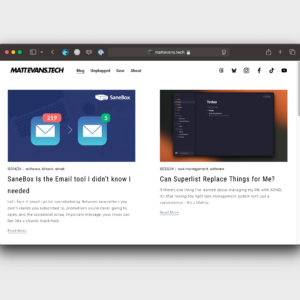In the latter part of 2024, the WordPress community was shaken by a significant dispute between Matt Mullenweg, co-founder of WordPress and CEO of Automattic, and WP Engine, a prominent managed WordPress hosting provider. This conflict not only highlighted tensions within the open-source ecosystem but also raised questions about the dynamics between open-source projects and the commercial entities that build upon them.
WordPress, launched in 2003 by Matt Mullenweg and Mike Little, has grown into the world’s most popular content management system (CMS), powering over 40% of websites globally. Its open-source nature has fostered a vast community of developers, designers, and businesses that contribute to and benefit from its ecosystem.
WP Engine, founded in 2010, emerged as a leading managed hosting provider specializing in WordPress sites. Offering optimized performance, security features, and premium support, WP Engine attracted a substantial user base, including enterprises and high-traffic websites.
The dispute became public in September 2024 when Matt Mullenweg, during a presentation at WordCamp US, criticized WP Engine for what he perceived as inadequate contributions to the WordPress open-source project. He accused the company of profiting significantly from WordPress without giving back proportionally, labeling WP Engine as a “cancer to WordPress” and urging the community to consider alternative hosting providers.
Mullenweg’s criticisms centered on several points:
- He argued that WP Engine had not contributed meaningful code or resources to the core WordPress project, despite building a profitable business atop the platform.
- WP Engine was accused of disabling certain WordPress core features, such as post revisions, which Mullenweg claimed degraded the user experience and led to confusion among users.
- Mullenweg expressed concerns over WP Engine’s significant ties to private equity, suggesting that profit motives might overshadow community-oriented values.
WP Engine’s vs. Mullenweg & Automattic
In response to Mullenweg’s public statements, WP Engine issued a cease-and-desist letter, accusing him and Automattic of defamation and extortion. The company claimed that Automattic had demanded a significant percentage of WP Engine’s gross revenues as a licensing fee for the “WordPress” trademark, which WP Engine viewed as an attempt to extract undue profits.
The situation escalated when WP Engine filed a lawsuit against Automattic and Mullenweg, alleging abuse of power, extortion, and greed. The lawsuit asserted that Automattic’s actions were detrimental not only to WP Engine but also to the broader WordPress ecosystem.
Mullenweg took several steps that intensified the conflict:
Mullenweg restricted WP Engine’s access to WordPress.org resources, including security updates and the plugin repository, citing trademark violations. This move disrupted WP Engine’s operations and affected its customers’ ability to access essential WordPress features.
Mullenweg runs WordPress.org and forked and took control of WP Engine’s popular Advanced Custom Fields (ACF) plugin, citing unpatched security vulnerabilities. While Mullenweg argued that this action was in the interest of public safety, critics viewed it as an overreach and a potential misuse of power.
WordPress Community Reactions
The dispute elicited strong reactions within the WordPress community:
Automattic offered severance packages to employees who disagreed with its stance against WP Engine. This led to the departure of approximately 8.4% of its workforce, highlighting internal disagreements over the company’s approach.
Many community members expressed concerns that the dispute could undermine the collaborative spirit of the WordPress project. There were fears that such conflicts might deter contributors and negatively impact the platform’s reputation.
In December 2024, a California District Court issued a preliminary injunction against Automattic and Mullenweg, ordering the company to cease blocking WP Engine’s access to WordPress.org resources. The court found that Automattic’s actions were causing irreparable harm to WP Engine’s business relationships.
This dispute underscores the complexities inherent in the relationship between open-source projects and the commercial entities that rely on them. The conflict highlights differing expectations regarding how companies benefiting from open-source projects should contribute back, whether through code, financial support, or other means.
My Take on Everything
I’m not an expert on legal changes regarding trademarks, but I understand the importance of protecting them. Initially, I supported Mullenweg’s position, and I still do to some extent. WP Engine may be infringing on the WordPress trademark, as some people may mistakenly think WP Engine is owned by the creators of WordPress. However, it’s important to note that WP Engine has been around since 2010. So, why is this issue coming up now? Additionally, what about all the other themes and extensions that use “WP” in their names? Are they in violation of the trademark as well?
WP Engine is alleging abuse of power, extortion, and greed in a lawsuit they filed. Some messages attributed to Mullenweg raise serious concerns. Mullenweg will have the opportunity to defend himself against these claims.
As a longtime user of WordPress, I believe it is a fantastic platform, and Mullenweg deserves credit for its success as a co-founder. I also want to recognize all the other developers who have contributed to this open-source platform. WP Engine has also contributed to its success as they host websites using the WordPress platform. But I also hope that WP Engine will give back to the WordPress community and support the open-source software on which its success relies.
I wish both parties much success and hope they come to a settlement in 2025. This dispute is ultimately hurting the WordPress community, and a resolution is crucial to maintaining the collaborative spirit that has made WordPress a global success.



